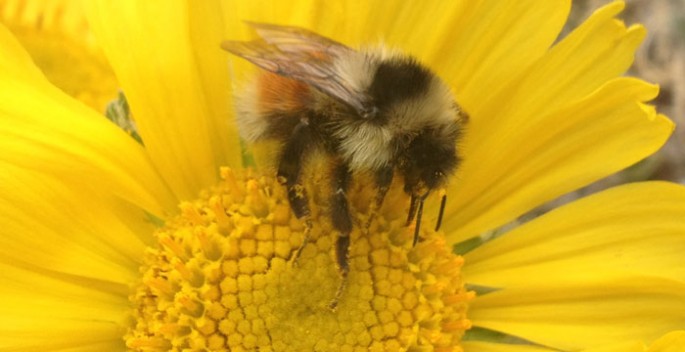Scientists have discovered that warmer summers are causing bees living in the Rocky Mountains in the United States to have shorter tongues.
Researchers have discovered how the long tongues of two bumblebee species living in the high altitudes of the Rockies evolved into a shorter length over 40 years which has been coinciding with significant higher rises in summer temperatures.
Scientists also believe that the bees are now adapting and evolving quickly since the flowers are also transforming on the habitat on which they feed, where deeper flowers that require longer tongues are now replaced with shorter flowers with nectar that can be reached by shorter tongued bees.
Researchers from the University of Missouri in Columbia led by Nicole Miller-Struttmann have studied several sites located in high altitudes in Colorado where they examined two species of long tongued alpine bumblebees called Bombus balteatus and B. sylvicola that are main flower feeding insects.
Researchers then compared the changes when it comes the bees' tongue measurement lengths from specimens collected in museums between 1966 to 1980 and from those recently gathered from 2012 to 2014. Scientists then discovered significant shorter measurements of their tongues that is not proportional to their smaller body sizes.
Scientists first thought that other bee species or insect pollinators had already invaded the habitats of the longer tongued bees however, the results of this study are suggesting that the flowers themselves already adapted and changed.
The team also conducted a survey of the region's flowers and revealed that the deeper flowers that longer tongued bees prefer were already replaced by shallower flowers. Flowers with deep corollas or inner floral tubes that keeps the nectar at its base have transformed with shallower corollas due to the change to significant warmer summers.
This new study is published in the journal Science.



























